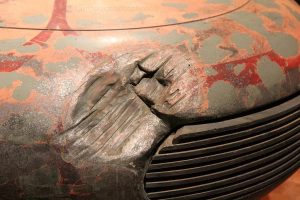Medical providers and pharmacies in the California Bay Area are scrambling to keep up with the newly-increased demand for Covid-19 testing, as cases of the virus surge fueled by the highly-contagious Delta variant.

At one CVS pharmacy in Richmond on Tuesday, a sign taped to the front door announced “Rapid Covid tests temporarily sold out”. At a hospital in the city where the drive-thru Covid testing site had recently been taken down, a line of walk-in patients seeking tests stretched down the block in front of the hospital. And in San Francisco last week, the old scene of lines of cars with passengers inside waiting to be tested was back at the city’s drive through test site.
The number of patients seeking Covid-19 tests in California has more than doubled from a month ago, when case counts were at their lowest point this year, according to state statistics. As of 10 August, about 200,000 patients per day were getting tests in the state, compared to 81,000 per day at the beginning of July. The testing totals were higher than most points in the pandemic, but still lower than last winter’s surge.
The trend extends nationally. The number of Covid-19 tests conducted across the US has jumped in recent weeks. Although the Centers for Disease Control and Prevention (CDC) has not yet published statistics for August, the number of tests being conducted rose 15% in the last week of July to a total of 816,672 daily.
The upsurge in demand for tests is not just driven by unvaccinated Americans who are at most risk for severe Covid, but by vaccinated residents concerned about often milder “breakthrough” cases. New studies have shown that these cases, while extremely unlikely to result in hospitalization or death, do have some potential to spread the virus.
Oakland resident Deirdre Tansey said she and her husband got tested after they drove home from a trip to San Diego and felt achy and run-down. They ended up waiting an hour in their car to get a test at Kaiser Permanente Hospital.
“The car line was around the block,” said Tansey, a vaccinated school employee, who said she had gotten used to being able to get tested in just a few minutes over the winter. “The employees were working their tail feathers off to get people through the line.”
“It was good to know we were negative though,” she said.
In California, some patients complained of longer lines for tests at hospitals and clinics and delays in receiving their results. However, both the state of California’s website and Quest Diagnostics, one of the nation’s largest providers of laboratory tests, said that most test results are still being returned within one to two days.
Pharmacies are also reporting a big demand for the new home test kits, which went on the market this spring.
“Covid-19 home test kits are the top-selling item in our stores,” said Tara Burke of CVS Health, which also offers in-store testing in 5,000 locations around the country. She said demand for in-store tests has increased “significantly” compared to the second quarter of this year.
But she said: “We have ample capacity to handle increased demand.”
The city of San Francisco closed its largest mass testing site on The Embarcadero in June, but, in a statement Tuesday, city health officials said they are still gauging whether more capacity is needed.
“We are monitoring the demand for testing and will continue to evaluate this and expand our testing infrastructure, if needed,” it said.
Patients have also complained of longer lines and greater difficulty finding tests in Florida, Georgia, Texas and other locations around the country.
Covid-19 case numbers have continued to climb both in California and nationally, according to the New York Times’ counts, with the US seeing a tenfold increase in cases since late June.
Health officials say the increases are largely driven by unvaccinated patients.
The California Department of Public Health said case rates among the unvaccinated are 470% higher than for those who have received the vaccine.



















Be the first to comment